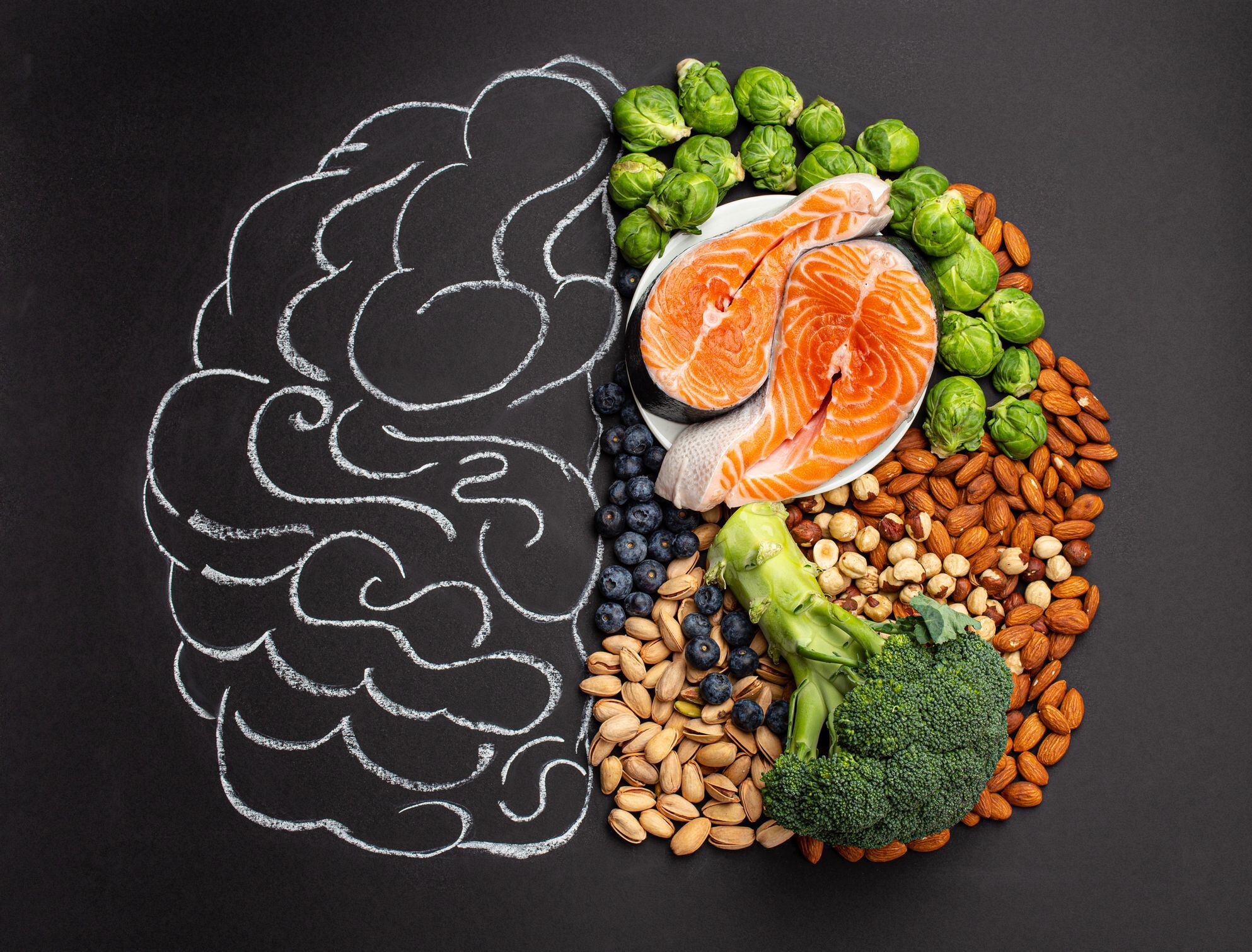The Micro Magic
In the quest for a healthy and lean body, we tend to focus on macronutrients – carbohydrates, proteins, and fats. However, a real problem lies in overlooking the importance of micronutrients – as they play crucial roles in supporting our health. Without vitamins and minerals, our bodies cannot perform various metabolic and physiological processes. In this blog post, we explore all the miracles those tiny things are capable of doing for our well-being.
What Are Micronutrients?
Micronutrients are various types of chemicals required by the body in small amounts. They can be classified into two main categories – vitamins and minerals. The body uses dozens of different micronutrients every single hour of every single day to keep us energized and produce enzymes and hormones. They play crucial roles as cofactors, catalysts, and regulators in enzymatic reactions, cell signaling pathways, and other biological processes. While only needed in tiny amounts compared to macronutrients, micronutrients are indispensable for maintaining optimal health.
Vitamins
Vitamins are organic compounds (composed of carbon and hydrogen atoms) made by plants or animals, that support immune function and numerous chemical reactions in the body. They are divided into two groups Fat-soluble as vitamins A, D, E, and K, and Water-soluble as all 9 that make the B complex* and vitamin C. Fat-soluble vitamins need fat to be absorbed by the body and cannot be excreted by urine or sweat, so they can reach toxic levels if in excess. Water-soluble, on the other hand, are easily absorbed and the excess is easily excreted. Although the vitamins C and D are famous immune supporters, all 14 vitamins are vital for a good functioning body.
Minerals
Minerals are inorganic substances (NOT composed of carbon and hydrogen atoms) that, as vitamins, are essential for various physiological functions in the human body. They are elements found in nature, either in soil or water, and are absorbed by plants and animals. Minerals are essential for cell activity, fluid balance, nervous system functions, and bone structure. Enzymatic reactions and transmission of nerve impulses are also facilitated by them. Humans need at least 18 different types of minerals to function properly.
Major minerals are the ones needed in larger amounts and include calcium, magnesium, potassium, sodium, phosphorus, and sulfur. Trace minerals like iodine, iron, selenium, manganese, and zinc are the ones needed in lesser amounts. While ultra-trace minerals like boron, cobalt, and nickel are needed in even lesser amounts.
Oxidative Stress
One of the most important roles micronutrients play is as antioxidants. Oxidative stress is what occurs when there is an imbalance between free radicals and antioxidants in the body. This leads to cellular damage and dysfunction. If oxidative stress becomes chronic, it can contribute to various health problems like tissue degeneration, commonly known as aging. But that’s not the worst thing that can happen, oxidative stress can also lead to chronic inflammation and mutations in DNA, increasing the risk of genetic disorders.
Chronic Diseases
Antioxidants can also prevent the development of chronic diseases like cancer, cardiovascular diseases, and diabetes. Blood vessels can be damaged by oxidative stress and therefore contribute to the development of cardiovascular issues such as atherosclerosis, hypertension, and heart failure. Insulin resistance, metabolic syndrome, and type 2 diabetes have also been linked to oxidative stress as well as neurological disorders, including Alzheimer’s and Parkinson’s. Having a diet rich in whole foods might avoid a lot of suffering.
Whole Foods Is Key
Doctor T. Collin Campbell, Professor Emeritus of Nutritional Biochemistry at Cornell University and author of the famous The China Study, said: “Every apple contains thousands of antioxidants whose names, beyond a few like vitamin C, are unfamiliar to us. Each of these powerful chemicals has the potential to play an important role in supporting our health. They impact thousands upon thousands of metabolic reactions inside the human body. However, calculating the specific influence of each of these chemicals isn’t nearly sufficient to explain the effect of an apple as a whole. Because almost every chemical can affect every other chemical, there is an almost infinite number of possible biological consequences.”
The China Study
In the early 1980s, nutritional biochemist T. Colin Campbell, in partnership with researchers at Oxford University and the Chinese Academy of Preventive Medicine, embarked upon one of the most comprehensive nutritional studies ever undertaken known as the China Project. China at that time presented researchers with a unique opportunity. The Chinese population tended to live in the same area all their lives and to consume the same diets unique to each region. Which were low in fat and high in dietary fiber and plant material. – very different from Western countries’ diets.
Study Findings
The plant-based nature of the rural Chinese diet gave researchers a chance to compare micronutrient-rich plant-based diets with micronutrient-poor animal-based diets for 20 years. In 2005, Campbell and his son shared the China Project findings with the world in their best-selling book The China Study. The connection between nutrition and heart disease, diabetes, and cancer becomes clear in the study. A diet rich in whole plants and therefore rich in micronutrients can indeed prevent the main chronic diseases.
Supporting Brain Function
Other crucial roles micronutrients play in your body are brain function and cognitive health. Vitamins A, C, B1, B6, B9 (or folate), and B12 together with minerals like iron, magnesium, potassium, selenium, and zinc are involved in neurotransmitter synthesis, nerve signaling, regulation of cell growth and division, and energy metabolism in the brain. Proper functioning of the brain will prevent mental health issues like depression and anxiety besides giving mental clarity and balancing mood and emotions.
Supporting Immunity
Micronutrients are also important for the immune system. Vitamin C promotes white blood cells’ function and production, which are essential for fighting off infections. Immunity is also enhanced by Vitamins D and E reducing the risk of autoimmune conditions. Vitamin A is crucial for maintaining the integrity of mucosal surfaces, such as the respiratory and gastrointestinal tracts, and also supports immune responses to infections. Additionally, minerals like zinc, selenium, and iron are essential for antibody production.
Enhancing Sleep Quality
The miracle of the micro goes even beyond immunity and brain health. Minerals, such as magnesium and zinc, are also part of the complex process that regulates sleep, making them foundational for having a restful and repairing night. Magnesium, in particular, helps relax muscles and nerves while zinc is involved in the production of melatonin, the sleep hormone. Lack of sleep has a profound impact on brain and overall health. If you don’t get enough sleep your cognitive function is reduced, your ability to learn is impaired, your memories don’t get stored properly, and you have slower reaction times.
Eat the Rainbow
The best and easiest way to make sure you’re getting all the micronutrients your body needs is to eat a wide array of whole, fresh, clean, nutrient-dense foods. Nutritional psychiatry and functional medicine have come to a consensus in stating that a balanced diet includes leafy greens, fruits, vegetables, legumes, whole grains, nuts, and seeds. By including at least one item from each of those food groups in every meal you’re certainly getting not only all the micronutrients but also good-quality macronutrients for your body’s needs.
To guarantee the maximum variety of nutrients, add as much color as possible to your plate – known as Eat the Rainbow. And don’t forget to drink plenty of water! Without it, your body cannot digest or transport those fabulous nutrients to your cells.
A Better Strategy
Although most diets focus on cutting carbs and fat and increasing protein, I believe that focusing on micronutrient intake is a better strategy. Especially because, according to Dr. Drew Ramsey‘s book – Eat to Beat Depression and Anxiety, roughly 50% of the US population is deficient in at least one of the 9 essential micronutrients for brain health. Not considering vitamin D deficiency which is becoming more and more popular lately due to lack of time outside. Have you ever heard about somebody with protein deficiency? Neither have I.
How To
You might be thinking, how in the world am I going to include leafy greens, fruits, vegetables, whole grains, legumes, nuts, and seeds in one meal? One easy way is to build big, rich salads. That’s what I do for lunch and dinner most days. I usually make a generous bed of leafy greens – spinach, romaine lettuce, arugula, watercress, kale, or even spring mix. Then I toss all the veggies I have in the fridge – tomatoes, carrots, cucumbers, beets, red onion, olives, cabbage. To finish I add some avocado, cranberry, and seeds – sunflower, pepitas, hemp. A drizzle of olive oil gives me fat for the absorption of fat-soluble vitamins and voila!
Whole Grains and Legumes
I usually eat a second course after my salad. It’s an everyday habit in Brazil, where I’m from, to have rice and beans in every meal. So, as a good Brazilian, my second course most days includes one grain and one legume. Sometimes, to skip the second course, I add quinoa, lentils, chickpeas, or beans to my salad to make it a complete meal. Salads are easy to make (no further skills needed besides chopping veggies) and you can play with infinite combinations. As you think about a second course some ideas are pasta, potatoes, or a sandwich. Add hummus or pesto and it makes a wonderful, nutritious meal.
A Rainbow
By making a big, tossed salad you can easily eat the rainbow. But, if you don’t like salads, consider adding more color to your plate. Think about adding nuts and seeds to your breakfast and snacks. Besides being nutritious, nuts and seeds are also delicious! Take the first step of stocking your pantry with all good non-perishable whole grains, legumes, nuts, and seeds. Once you have them handy look for recipe ideas – I have some in my e-book and others on my website. Then just eat, relax, and let the micronutrients do their magic!
And remember: Good is what makes you feel well!
Anna.
(*) B complex vitamins: B1 – Thiamine; B2 – Riboflavin; B3 – Niacin; B5 – Pantothenic acid; B6 – Pyridoxine; B7 – Biotin; B9 – Folate (also known as folic acid); B12 – Cobalamin. Although not officially part of B complex vitamins, Choline is sometimes referred to as vitamin B8.

Anna Resende
Integrative Nutrition Health Coach
Certified by IIN - Institute for Integrative Nutrition
Every week I send out my newsletter called Mamma’s Tips where I share health and wellness topics, good books, recipes, and more.
Click below to subscribe!
I’m excited to share that I just published my first e-book
A Weekend of Feeling Great!

In this book, you’ll find all the steps you can take to feel great. Besides all the foundational principles of multidimensional health, it has a sample of a productive daily routine and a two-day menu with 10 healthy recipes for you to try.




